Introduction
Wild dogs have eaten meat for hundreds of thousands of years, and since domestic dogs share a genetic ancestor with wolves, this is perhaps the best type of food they’re supposed to have.
But can dogs eat meat often? Is raw meat safe? How long does meat have to be cooked? What type of meat can dogs eat? We’re answering all of these questions and more in today’s article, so keep on reading!
Is meat good for dogs?
The obvious answer to this question is yes! Meat is rich in a wide range of nutrients, which we will describe in the sections below and for dogs and some pets like cats (obligate carnivores), it can be extremely important.
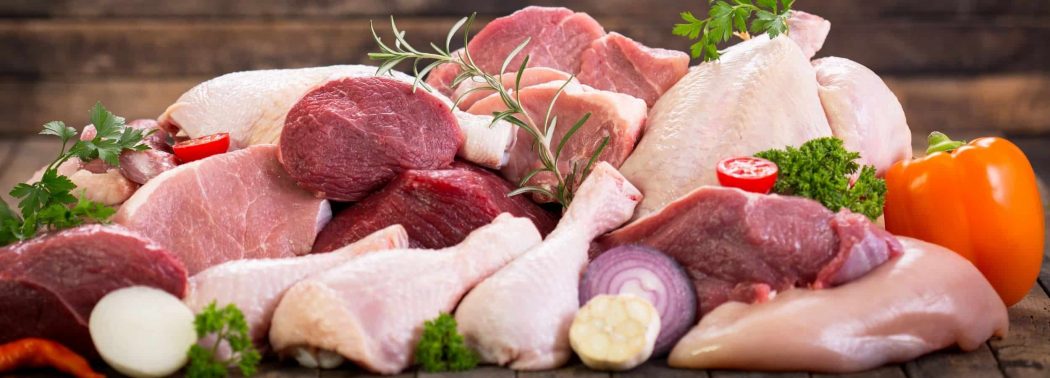
Protein
When it comes to the best meat for dogs, this is perhaps the most important reason to start feeding it to your pet. The amount of protein contained by meat largely varies depending on the exact species.
For example, in 100 grams (3.5 ounces) of beef, there is around 27 grams of protein, but the cut needs to be lean. If it’s richer in fat, the percentage of protein drops.
This nutrient is extremely important for dogs and other animals as it is involved in building and repairing tissue. It’s also great for keeping your dog full — veggies and beans keep your pet full for a shorter amount of time, by comparison.
If your dog is involved in physically strenuous activities throughout their days, protein is even more important.
In general, more than half of a dog’s diet should be made up of protein-based sources, whether that means meat or protein-rich legumes such as lentils, black beans, or kidney beans.
L-Carnitine
L-carnitine is an amino acid that can be found in several different types of food, from cheese and ice cream to asparagus and whole milk.
Beef is perhaps the richest type of meat you can give your dog if you want them to get enough of this amino acid — every 4 ounces of beef contain between 56 and 162 mg of L-carnitine.
Some studies suggest that L-carnitine can prevent inflammation, oxidative stress, diabetes, and that it can promote heart health and even weight loss.
Since beef can be quite expensive, you might want to know that L-carnitine is present in other types of meat, too, such as chicken breast (3-5mg per 4 ounces) or cod (4-7mg per 4 ounces).
Minerals
Meat, in general, and beef in particular, is extremely rich in minerals. The percentage of minerals per 100g of meat varies from species to species, but some of the nutrients it is particularly rich in are calcium, copper, magnesium, manganese, potassium, selenium, zinc, and phosphorus.
Giving your dog meat on a regular basis can not only prevent rickets in young puppies, but it might also be able to prevent osteoporosis in senior animals.
Iron
Although technically iron is a mineral so we could have included it in the section above, we decided to treat it separately as it is paramount for healthy body development.
Iron deficiency is more prevalent in dogs that do not get enough meat in their diets — and even commercial dog foods these days might not contain enough (except for those that were specifically enriched with this nutrient).
Although iron deficiency usually occurs in dogs as a result of trauma and blood loss, this mineral is involved in very many processes in your pet’s body — from being the major component in red blood cells and bone marrow to aiding in the production of several hormones.
Some pet owners give their dogs iron supplements when they are in heat (and even adult women should supplement their diets with this mineral during menstruation).
Vitamins
Meat is the biggest source of B-complex vitamins, such as the following:
- Niacin
- Riboflavin
- Thiamin
- Vitamin B12
- Vitamin B6
B vitamins have a plethora of beneficial effects on a dog’s body, such as making sure that their brain functions properly, promoting cell health, and improving an animal’s metabolism.
The amount of and type of vitamins that meat contains vary from one type to the next but it is widely acknowledged that even organ meat for dogs, for instance, contains many B vitamins, iron, as well as zinc.
Is meat bad for dogs?
When feeding raw or cooked meat for dogs, you might wonder whether there are any risks that you should consider. Luckily for you, we’ve listed all of them below.
Choking hazard due to the bones
If you’re looking to save some money by feeding your dog bones with flesh left on them, think again. Depending on the type of bones, these can be a very risky food item to give your dogs. Poultry bones are the riskiest of all as they tend to break up into splinters.
Needless to say, these sections can cause an intestinal blockage (in the best case scenario) or might even get lodged into your dog’s throat or even pierce through your dog’s stomach or intestinal wall.
Larger bones such as beef bones are better, although even those can be split into several smaller pieces so they might cause issues, too.
Potentially pathogenic microflora
Can dogs eat spoiled meat? No. If you wouldn’t eat that meat yourself, do not feed it to your pet as you can put them at a risk of developing an infection.
Spoiled meat is rich in a variety of bacteria and sometimes, even viruses or fungi, and all of these can cause serious health complications for dogs.
Although the latest pet parent trends could convince you that you should feed your dog a raw diet only, the truth is that you have to consider the benefits and the risks. If the meat is very fresh and you portion it for several days’ worth, you have to freeze all the food to make sure that your dog doesn’t get exposed to a microbiological hazard.
If you do not know for sure whether the meat is fresh or not, the best way of going about things is to cook it properly.
Parasite eggs
This is another risk that’s associated with feeding dogs raw meat — but it’s become less of a concern over the years as most of the meat you can get in stores is verified by veterinarians. For example, it used to be that pork meat had a problem with Trichinella spiralis, which is a nematode that can cause severe digestive symptoms in both humans and animals.
But unless you farm your own pigs, this is not a risk you need to be concerned about. And even then, you can ask your local vet to check the meat for larvae using a microscope and you can thoroughly cook it so that the eggs die.
How much meat is safe for dogs?
As previously noted, it is a good idea to feed your dog meat so that it makes up about half of their entire diet.
You might think that the more, the better, but the truth is that some animals, especially those that have allergies or that are in their senior years, might have a harder time processing as much protein as healthy adults can.
For this reason, we strongly advise you to feed your dog a varied diet composed of meat, vegetables, legumes and the supplements recommended to you by your veterinarian.
We can’t give you a specific amount of meat that’s safe or unsafe for each dog as this species largely varies in terms of size — needless to say, you cannot feed the same amount to a Chihuahua as you would to a Saint Bernard.
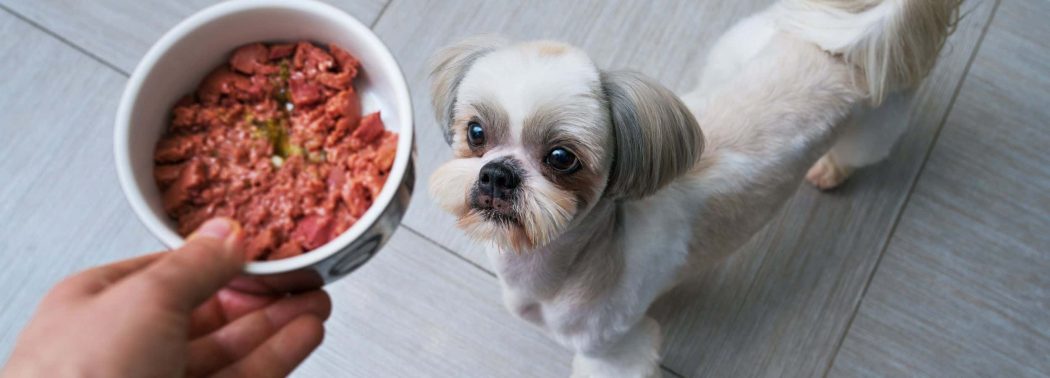
How to prepare and serve meat to your dog
Can you feed dogs raw meat? While it might be true that raw meat is richer in nutrients as the heat has not affected its content in any way, it’s also riskier in terms of the bacteria that it can carry — so we do not advise feeding it to your dog on a regular basis.
The same goes for raw hamburger meat and raw organ meat.
Whether you decide to boil, bake, roast, braise, or even grill your meat, it needs to be cooked thoroughly and evenly to make sure that all the bacteria is decimated.
Grilling is considered less safe as it might not be as effective by comparison. Frying the meat is not a good idea as it adds unnecessary calories to your dog’s daily intake and it’s also too rich in fat — which can be an issue for dogs who might have pancreatic disease.
If you do not want to make a habit out of feeding meat to your pet, you can turn it into a snack, such as a reward for being a good boy or a good girl. You can also make your own jerky in the oven and chances are that it will be much healthier compared to commercial alternatives since it’s not going to contain any artificial colors or preservatives.
As a final note to this section, we’d like to add that you should not add any condiments or seasonings to the cooked meat — feed it as it is and do not add any salt, onion, garlic, sauces, paprika, or anything else you might usually add for yourself.
Best practices and restrictions
Can dogs eat lunch meat? No, and while we’re at this, we’d like to note that all canned meat varieties are generally less safe compared to actual meat that you cook yourself — and this is because they often contain additives, binders, or preservatives that can make these foods be shelf-stable for many months.
The best meat to feed dogs that are pregnant is always cooked — no matter the type. Avoid feeding pregnant bitches fish or seafood as they can be risky. Never feed them raw meat or meat bones for dogs.
Puppies and pregnant dogs should almost never eat a raw homemade diet just to be on the safe side of things.
What about the best meat for dogs with allergies? If your dog is itchy, you should look for a meat type such as salmon, venison, or lamb. Pretty much any type of meat that your dog’s never tried before is considered hypoallergenic.
Frequently Asked Questions
If your veterinarian agrees that raw meat might stimulate your dog’s appetite, for example, and might supply them with a number of vitamins that they might not get elsewhere, you might be able to feed your dog this food. But otherwise, no — raw meat can carry pathogens like Listeria, Salmonella, or E. coli, to name just a few.
Cooked ribs, whether pork or any other species, are generally safe if you’ve already cooked them thoroughly. However, rib meat is usually richer in fat compared to other types, and your dog is also likely to eat the bones, which can be a risk to their health.
Organ meat might be less appetizing for people, but the truth is that it is extremely rich in nutrients. Liver is probably the best since it contains vitamins A, D, E, and K, closely followed by heart meat (as it contains CoQ10, which basically prevents aging), tripe (rich in probiotics), and kidney (omega 3 fatty acids).
Yes. Duck meat is completely safe for dogs and if you farm your own ducks and they eat a wholesome and healthy diet, their meat is even better for your pet. Avoid feeding duck bones and the duck liver, though, especially since the first pose a choking hazard and the second is very rich in fat.
Dogs can safely consume goose meat, too, but it’s slightly higher in cholesterol and fat, in general, so it should typically be given as a treat rather than as the main source of nutrients.
Yes. Actually, venison is rich in vitamins B, but also iron and zinc. Plus, since it is a relatively novel source of protein (at least to dogs), it is also considered hypoallergenic.
Plain, cooked, and unseasoned turkey can make a good protein alternative for dogs, especially since it is rich in riboflavin and phosphorus. Small quantities of turkey breast can also help dogs to lose weight.
Chicken is perhaps the most common type of meat currently available and because of this, lots of dogs can become allergic to it. Cooked chicken meat is safe, but you should never feed it to your pet in its raw state.
The answer to this question is also a yes. Cooked lamb meat is perfectly safe, so long as you do not season it with anything — serving it with some pumpkin or cooked carrots will make it both nutritious and provide your pet with some healthy fiber, too.
Undercooked or raw pork meat can be dangerous as it can carry parasite larvae (we mentioned Trichinella spiralis). Cooked pork is fine, but you should remove the fat, especially if your dog is at a risk of becoming obese or if they are a senior.
Yes! Lean beef is not only safe, but it’s also among the most nutrient-rich types of meat that dogs can have. It’s packed in vitamins and minerals and all you have to do is to make sure you cook it properly and serve it to your dog completely plain.
Summary
So, can dogs eat meat? Usually, yes. Cooked meat is safer as it can’t be contaminated with any bacteria, viruses, or fungi. Bones are risky as they can cause intestinal blockages, but bone broth is safe.
The best types of meat you can give to dogs are beef, lamb, venison, and organ meat.
Sources:
- The effect of L-carnitine on weight loss – A Systematic reviw and meta analyiss of randomized controlled trials, 2016, Morvarid Pouyandjoo, Mojtaba Nouhi, Sakineh Shab Bidar
- Raw diets for dogs and cats: a review, with particular reference to microbiological hazards, 2019, R H Davies, J R Lawes, A D Wales
- Zoonotic bacteria and parasites found in raw meat-based diets for cats and dogs, 2018, Freek P J van Bree BSc, Gertie C A M Bokken BSc, Robin Mineur BSc, Frits Franssen PhD
- Trichinella spiralis, 2010, Science Direct
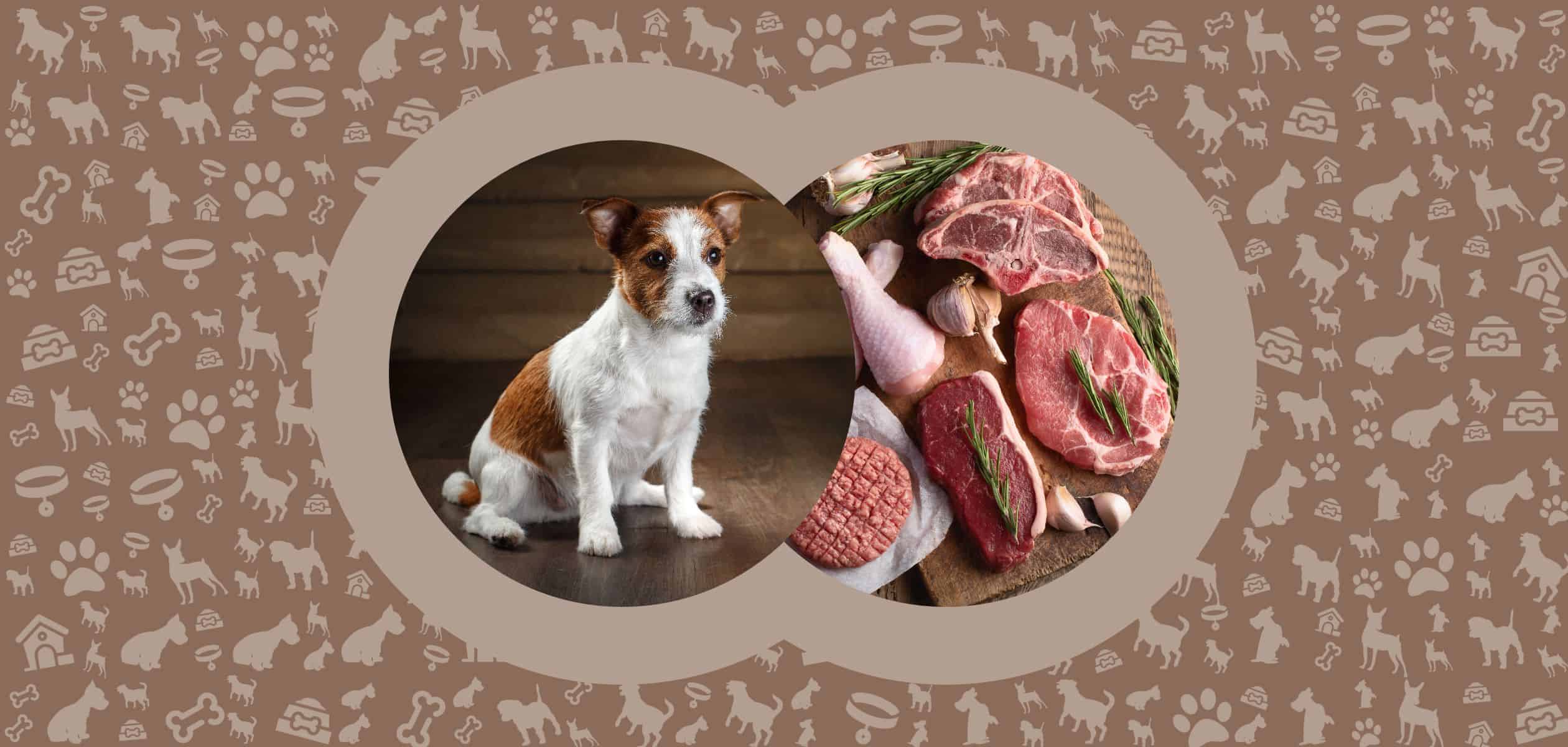
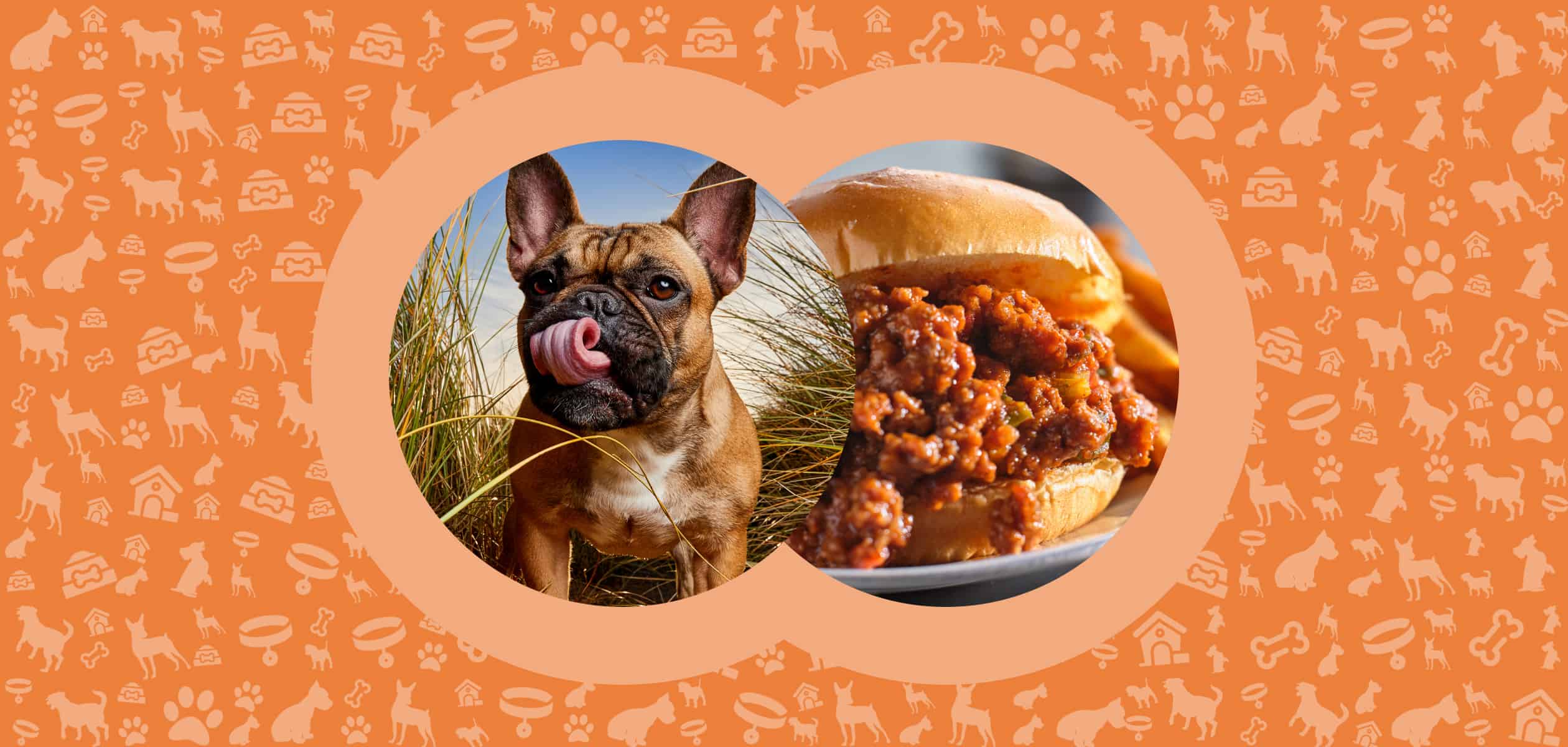
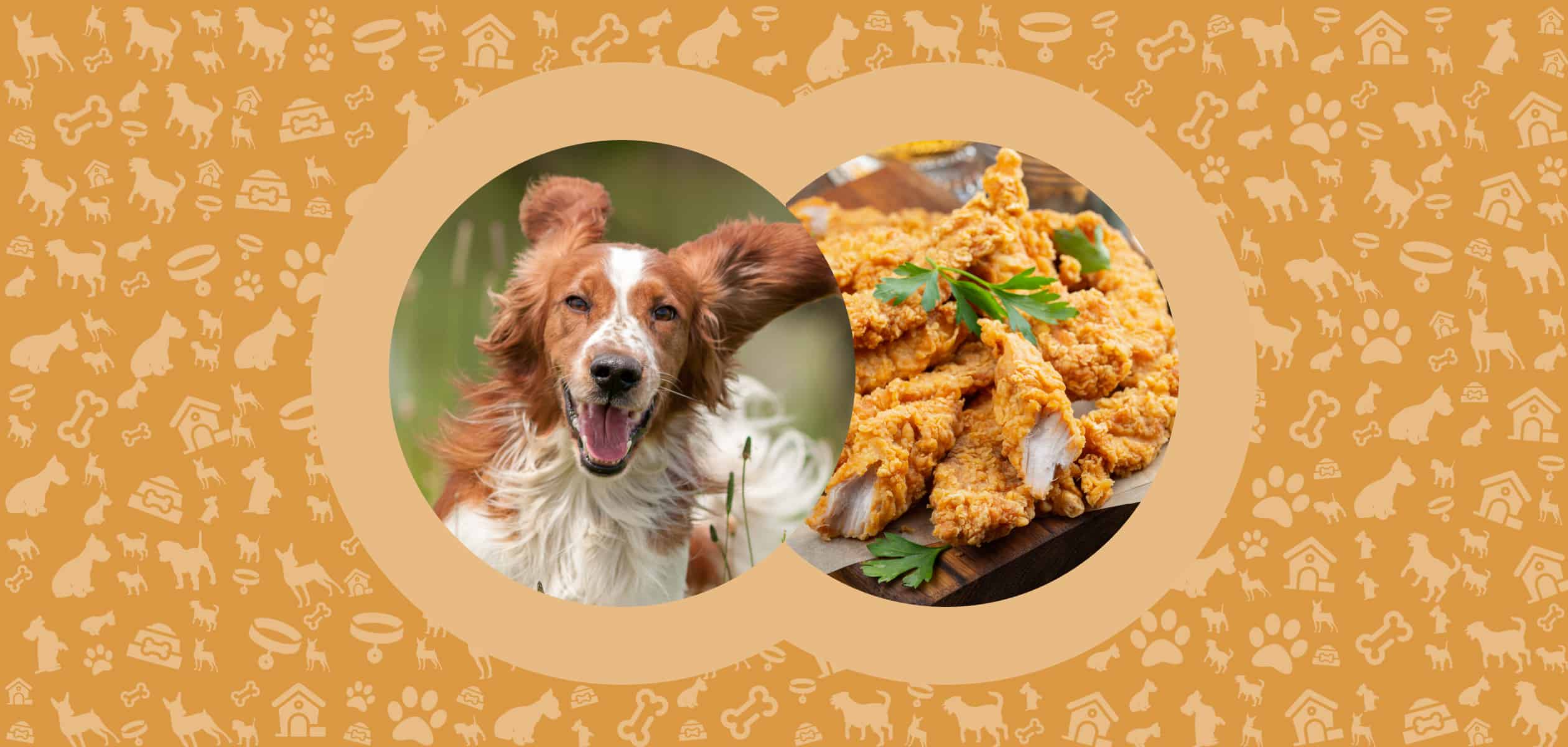
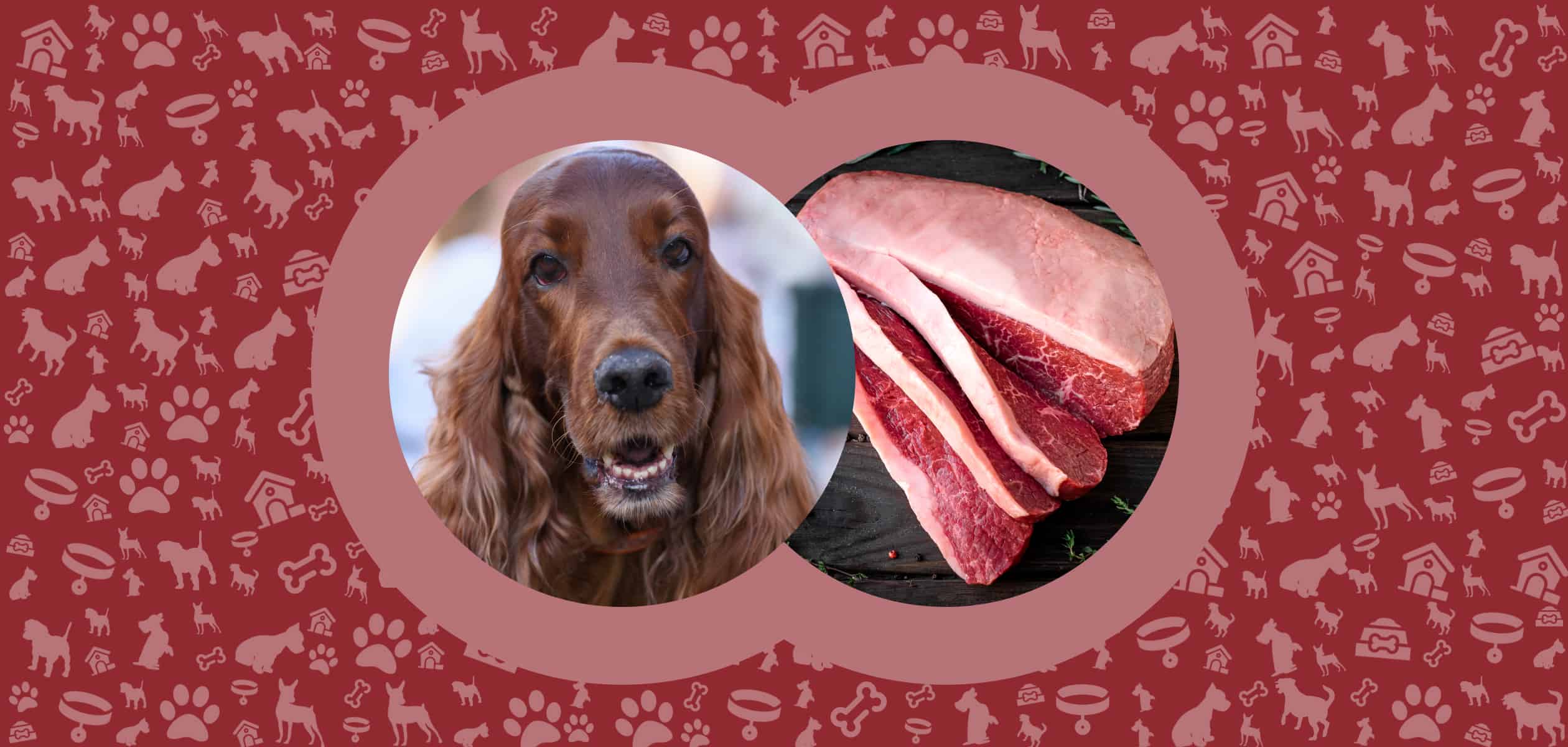
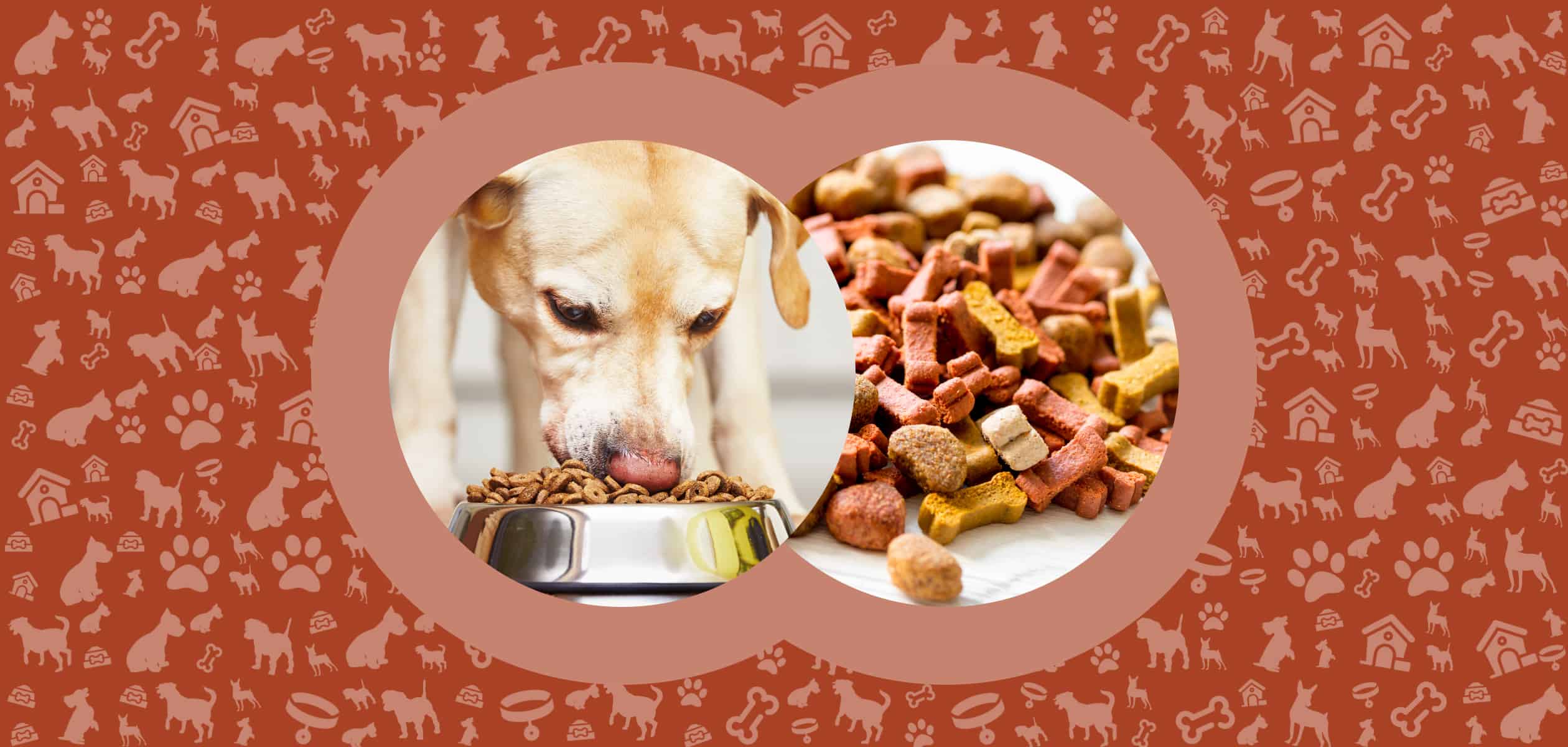
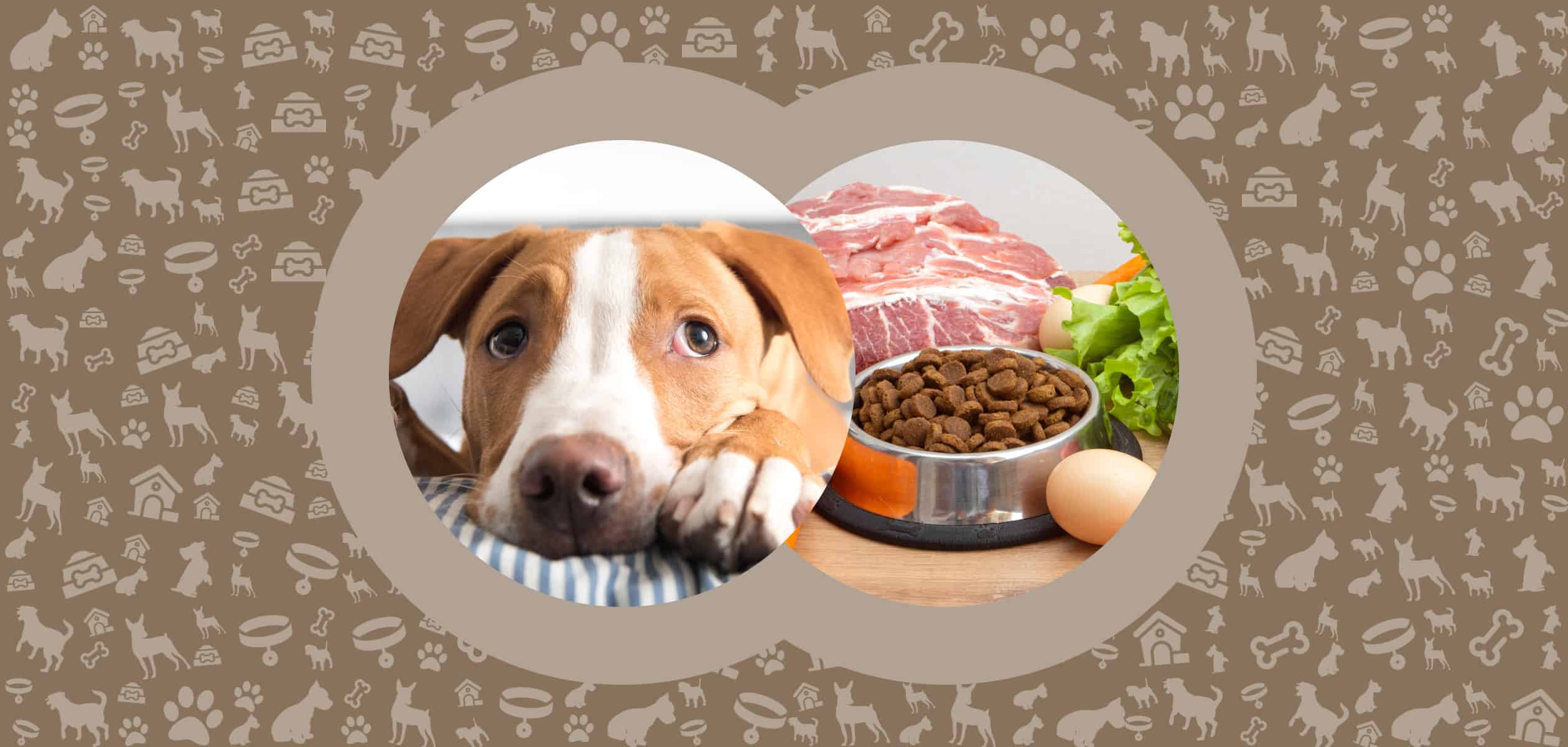
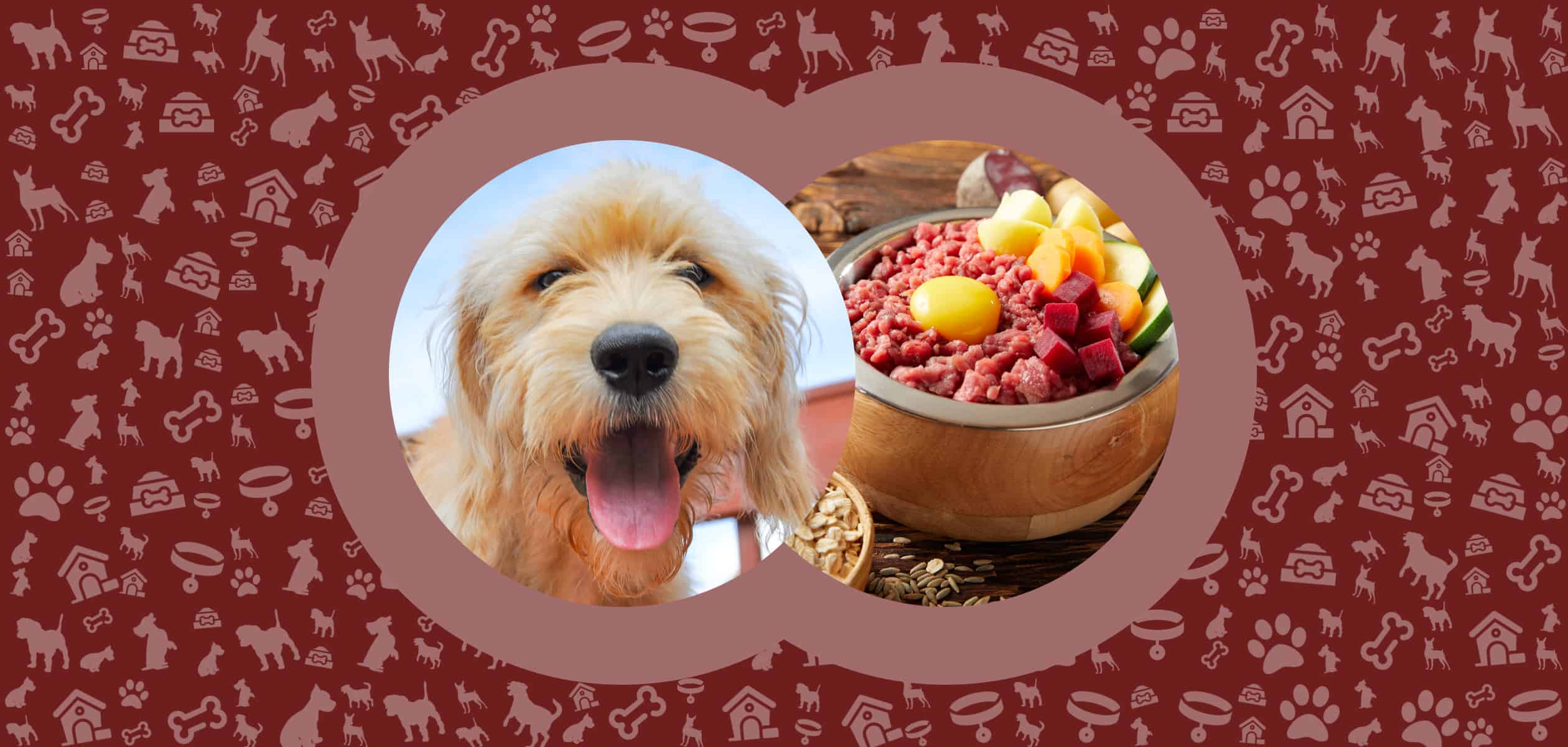
Leave a Comment